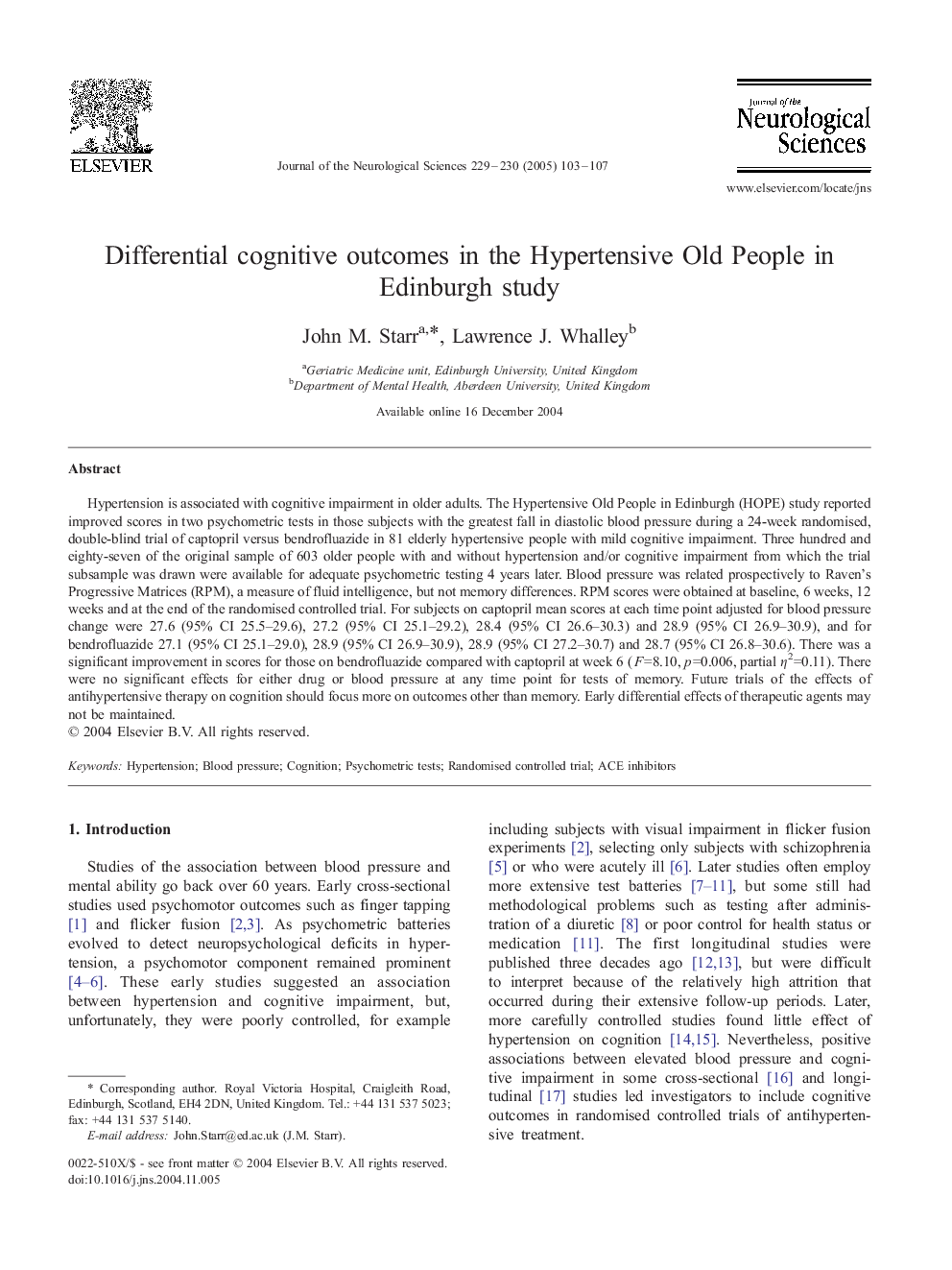| Article ID | Journal | Published Year | Pages | File Type |
|---|---|---|---|---|
| 9880401 | Journal of the Neurological Sciences | 2005 | 5 Pages |
Abstract
Hypertension is associated with cognitive impairment in older adults. The Hypertensive Old People in Edinburgh (HOPE) study reported improved scores in two psychometric tests in those subjects with the greatest fall in diastolic blood pressure during a 24-week randomised, double-blind trial of captopril versus bendrofluazide in 81 elderly hypertensive people with mild cognitive impairment. Three hundred and eighty-seven of the original sample of 603 older people with and without hypertension and/or cognitive impairment from which the trial subsample was drawn were available for adequate psychometric testing 4 years later. Blood pressure was related prospectively to Raven's Progressive Matrices (RPM), a measure of fluid intelligence, but not memory differences. RPM scores were obtained at baseline, 6 weeks, 12 weeks and at the end of the randomised controlled trial. For subjects on captopril mean scores at each time point adjusted for blood pressure change were 27.6 (95% CI 25.5-29.6), 27.2 (95% CI 25.1-29.2), 28.4 (95% CI 26.6-30.3) and 28.9 (95% CI 26.9-30.9), and for bendrofluazide 27.1 (95% CI 25.1-29.0), 28.9 (95% CI 26.9-30.9), 28.9 (95% CI 27.2-30.7) and 28.7 (95% CI 26.8-30.6). There was a significant improvement in scores for those on bendrofluazide compared with captopril at week 6 (F=8.10, p=0.006, partial η2=0.11). There were no significant effects for either drug or blood pressure at any time point for tests of memory. Future trials of the effects of antihypertensive therapy on cognition should focus more on outcomes other than memory. Early differential effects of therapeutic agents may not be maintained.
Keywords
Related Topics
Life Sciences
Biochemistry, Genetics and Molecular Biology
Ageing
Authors
John M. Starr, Lawrence J. Whalley,
